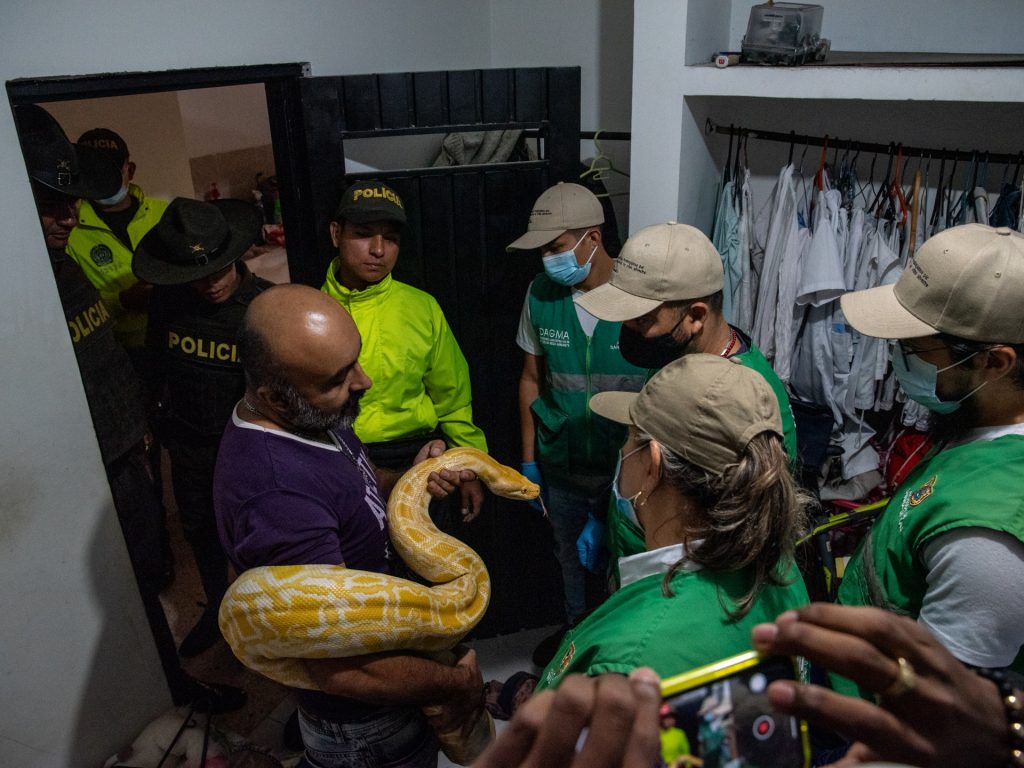In Cali, Colombia, a task force conducted a raid in January 2023 to uncover contraband and discovered a large python and two taricaya turtles hidden in a home. This operation was part of an initiative to combat wildlife trafficking in Colombia, alongside the country’s ongoing efforts to tackle drug trafficking. Recognizing the growing need to address this issue, the government decided to focus on poaching and wildlife trafficking, which generate billions of dollars in revenue globally. The wildlife investigative unit in Colombia rescued an average of three animals per hour in 2023, highlighting the scale of the problem.
With its rich biodiversity, Colombia is a prime target for wildlife traffickers who exploit its diverse ecosystems to capture and sell rare animals on the black market. The depletion of endemic species can have detrimental effects on the ecosystem, disrupting crucial ecological roles such as seed dispersal and pollination. As Colombia steps up its efforts to protect its natural heritage, wildlife trafficking has increasingly become a target for law enforcement. Specialized units have been trained to investigate and dismantle criminal organizations involved in the illegal trade of animals, with a focus on exotic pets that gained popularity during the COVID-19 pandemic.
The tactics used by wildlife traffickers have evolved to evade law enforcement, using the same routes and methods as drug traffickers but attracting less attention. Animals are transported from remote areas to urban centers, often disguised in packages or luggage to be shipped internationally. Online platforms have become a new frontier for wildlife trafficking, with exotic animals advertised and sold through social media channels. Despite the illegality of owning certain wildlife species, cultural traditions and the belief in status symbols drive demand for these animals in Colombia.
The efforts to catch poachers mirror those used to apprehend drug dealers, with police monitoring online platforms, going undercover, and conducting sting operations to rescue trafficked animals. The investigative unit in Colombia has enabled high-profile arrests, yet the enforcement of penalties remains challenging, with offenders often serving minimal time in jail. The harsh conditions of transit result in a high mortality rate for trafficked animals, making successful rescues a rare occurrence. However, the rescue of a python and two turtles in Cali showcased a positive outcome, with the animals being placed in a zoo and released back into the wild, respectively.
Despite the challenges and limitations in prosecuting wildlife traffickers, the work of individuals like Cristian Mesa, head of the environmental crimes unit in Colombia, provides a sense of satisfaction in protecting endangered species and preserving ecosystems. The impact of wildlife trafficking extends beyond economic gains, affecting the delicate balance of nature and threatening the survival of unique species. As Colombia continues to combat this illicit trade, the collaboration between law enforcement, conservationists, and the public plays a vital role in safeguarding the country’s natural heritage for future generations. Through education, awareness, and strong enforcement measures, efforts to combat wildlife trafficking can make a significant difference in preserving biodiversity and protecting vulnerable ecosystems.















